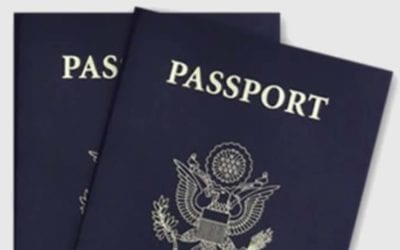The newspapers are starting to fill with articles about American Airlines fighting with online travel agents and Delta Air Lines deciding to pull ticketing away from some smaller online travel agents. What the heck is happening. What are the airlines thinking?
Why don’t the airlines try something very basic — tell us the prices, all of them for every service, and let us figure out what we want to pay for and where we want to fly. It is not rocket science from a consumer’s point of view.
Whether a family is looking to take a vacation to Disneyworld or a giant corporation is sending thousands of executives across the globe, they are begging the airlines to tell them the same thing. They want total prices, including all airline fees, so that they know what they will have to spend and for what so they can make decisions and plan.
Don’t keep leisure or corporate travelers guessing.
Why doesn’t American Airlines want to tell us their prices. They are so determined to keep their airfares and ancillary fees secret that they have pulled all of their prices from Orbitz, one of the largest online travel agents!
They are so determined to use their own proprietary booking systems that prevent passengers from making simple price comparisons, that they could not reach an agreement with Expedia, the largest online travel agency in the world.
American Airlines is so determined that the entire airline distribution system be reorganized to fit with their technological schema that they are now in litigation with two of the largest computer giants that service almost half of AA’s business with travel agents and corporations.
AA is purposely fighting with the very entities that allow it to sell almost 60 percent of its tickets every day. Right now, AA is losing market share. While every other airline seems to be reporting profits, AA reported a loss. These are strange battles.
AA’s reasons for picking these fights?
1. AA thinks their seat from Point A to Point B is better than other airline seats and they object to be compared with their brethren based on airfares alone.
2. They don’t want us to pick and choose our extra fees for everything from the cost of baggage we might want to bring to a chance to board early or use WiFi on their planes. They want to “package” their offering to us based on our “travel profile.” What the heck happened to free choice?
3. They think they can do it cheaper.
In the meantime, the Consumer Travel Alliance (CTA) and the Business Travel Coalition (BTC) have been battling with the airlines over just this issue — basic truth in advertising. Offer us your product. Describe your product. Then let us decide whether or not we want to purchase it. The two most important organizations for leisure travelers and business travelers are begging the airlines to go back to basic sales.
More than 50,000 consumer travelers signed an online petition last September asking the Department of Transportation (DOT) to mandate that the airlines disclose ancillary fees like baggage charges, onboard WiFi fees, snack costs, pillow and blanket expenses and so on.
The airlines are still resisting. Now they are trying to make comparing airfares more difficult by demanding that travel agents use their proprietary airline systems to book tickets rather than the industry-wide reservation systems that have been in place for decades.
More than a hundred of the largest corporate travel management companies that service millions of corporate travelers have joined with the country’s largest travel agent organization to tell the airlines they have no desire to change the way they are doing business. But, AA has never been known to operate with the attitude that the customer is always right.
The airlines look at comparison shopping as demeaning. Their bottom-line attitude is, “How dare potential passengers compare our superior flight experience with another airline’s inferior service based on price alone?”
The airlines can differentiate their products by either monopolizing various routes, making it impossible to fly on another airline by virtue of no competition, or by making it more difficult for consumers to compare prices, buy hiding comparative prices.
Or, airlines can advertise their services to pitch potential passengers on why they should fly, let’s say, with American Airlines rather than Virgin America on a transcontinental flight or why a passenger should choose Delta Air Lines over JetBlue on the Boston-to-Washington Reagan route.
In both of these cases, American and Delta have a tough sell. No wonder they hate competition. The routes are the same. The only way that either Delta or American can compare favorably with JetBlue or Virgin America is on frequency of service and frequent flier rewards. JetBlue and Virgin America have better inflight service, free snacks, great inflight TV entertainment and for the most part newer, cleaner and more comfortable airplanes.
Perhaps, American Airlines and Delta Air Lines know that once passengers have a taste of the far-better service offered by their competitors, normally, at far more reasonable prices, they will be in trouble on competing routes.
I close with a plea to the airlines. Please just tell us your prices. Release your airfares and airline fees to all ticket agents selling your tickets anywhere. Let us purchase your product everywhere tickets are sold. Make it easy to buy airline tickets and your extra services rather than a game of whack the mole as new fees crop up unexpectedly from time to time during the buying process.
The airlines have the technology. The airlines know it. Now is the time for the airlines to be honest with their customers and provide us with transparency of total airline ticket pricing.

Charlie Leocha is the President of Travelers United. He has been working in Washington, DC, for the past 14 years with Congress, the Department of Transportation, and industry stakeholders on travel issues. He was the first consumer representative to the Advisory Committee for Aviation Consumer Protections appointed by the Secretary of Transportation from 2012 through 2018.


